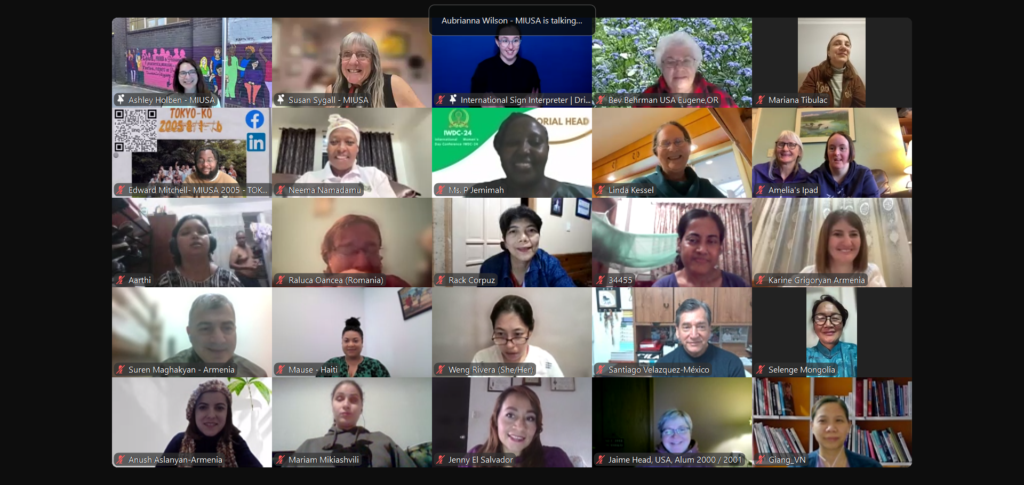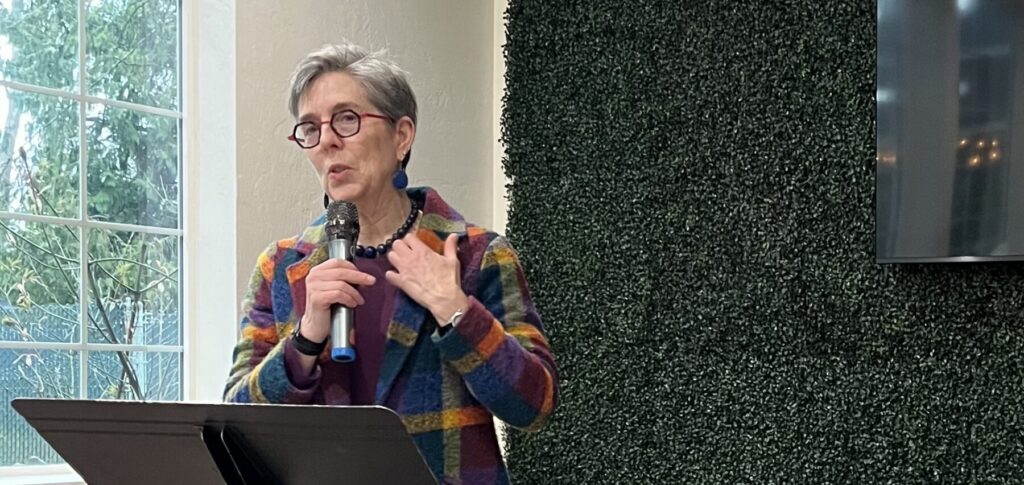Have you noticed how disability organizations have changed in the past decades?
In the past, if someone with a disability wanted an opportunity to do sports, art, education, or travel, then they found a disability organization that offered such a program. The programs that their non-disabled peers were participating in offered more options, but they didn’t accommodate people with disabilities, nor did they have much experience doing so.
Nowadays, people with and without disabilities can choose to be together on the same inclusive programs in part due to advocacy by disability organizations. These organizations have moved from being program providers to being technical advisors.
At Mobility International USA (MIUSA), we have played both roles since 1981, when the organization was founded. That year, MIUSA published a “World of Options” series of handbooks that told people with disabilities “to have adventures that perhaps everyone told you ‘weren’t possible,’” including mainstream international exchange.
Today, MIUSA continues its role as technical advisor through our National Clearinghouse on Disability and Exchange (NCDE). The NCDE has been sponsored since 1995 by the U.S. Department of State, Bureau of Educational and Cultural Affairs (ECA) to increase participation of people with disabilities in inclusive international exchange programs. The ECA sees disability as part of their focus on diversity.
In the past decades, people with disabilities applied through the usual routes, and been accepted as Peace Corps volunteers, Fulbright grantees, and AFS high school exchange students. Through these and other international experiences, they are showing that international programs – designed with the broad range of diverse participants in mind – can be successful in including people with and without disabilities.
Our staff working on the NCDE provides encouragement and practical advice for any overseas exchange programs (such as local university study abroad offices) to become more accessible and inclusive. By increasing awareness and sharing strategies, we work to make sure that these programs do not turn away people with disabilities because of lack of information on what to do.
The best practices begin at the systemic level where the benefits are more far reaching. Learn how to Build Your Capacity as Exchange Professionals.
We also work to empower people with disabilities to take the chance to go abroad and how they can plan and negotiate for what they need to participate.
Begin to Plan Your Travel whether you are coming to the United States or as an American going abroad.
We are the confident voice that says people with disabilities have moved into the mainstream, and through our work, we are moving steadily towards making international programs and the world more accessible and inclusive for everyone.
Sign up for our E-News






Manage Your Privacy